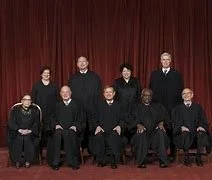DEBATE, DECISION AND POLOTICAL DYNAMICS
Presidential Dilemma
Welp, much has already been said about the presidential debate between Joe Biden and Donald Trump. There are actually no surprises for us to speak of if we really want to be honest. Both candidates got on the stage and lied. However, it is evident that Joe Biden should reconsider running for another term as president. His performance has raised serious concerns about his cognitive capabilities and his ability to inspire trust and project strength on the global stage. Equally disturbing is his apparent reluctance to step aside for a more moderate candidate to prevent a potential Trump reelection and the grim reality that his mendacity will not allow him to sacrifice himself and step aside.
After witnessing the debate and Trump's performance, I felt genuinely ill. What is one to do when caught between a rock and a hard place? It's only four years, after all, but there's an unspoken fear lurking beneath the shadows of our political landscape. On one hand, there's worry that Trump may fundamentally uproot our democratic norms. On the other, fears loom that Biden could inadvertently lead us straight into WWIII or step aside and pass the battalion to Kamala Harris. . To say America faces a tough decision this November is, frankly, an understatement.
The Fallout of the "Nuclear Option"
Amid these presidential tensions, the pressures from both the democratic House and Senate are palpable. What is ironic is we can turn back the hands of time and see how their pulling a single thread in our democracy to silence one side has resulted in near disaster for our nation.
It is difficult to believe, but a single Democrat decision from 2013 has brought us to this unfortunate point. Despite warnings from Mitch McConnell, we find ourselves in a real-life pickle. The choice by Harry Reid and his fellow Democrats to invoke the "nuclear option" was celebrated as a victory back then, as they finally had enough power to silence the Republicans. However, seemingly oblivious to the cast of democratic characters was the fact that the same rules could one day turn against them. Blinded by their their own desires to silence the cohort of Republicans against President Obama, they pulled the thread and paved the way for a king.
Since at least 1806, the right to filibuster has been a part of Senate proceedings. The filibuster tactic involved prolonged debate to exhaust the opposition. The longest filibuster in history opposed the passing of the Civil Rights Bill in 1957; it lasted 90 days and also survived a 24-hour filibuster from Senator Strom Thurmond. This was precisely the tactic Democrats sought to silence in 2013, blocking the opposition to President Obama’s nominees. This prompted Reid's threat to employ the "nuclear option," adjusting the cloture threshold from 60 down to a majority plus one.
For nearly 40 years, any debate on the Senate floor required a two-thirds majority vote to end and move forward. That was known as the "cloture rule," giving the minority a voice in the government process. The two-thirds majority was further reduced to 60 senators in 1975 and in 2013, it was a significant victory when Harry Reid further lowered the number to only 51, diminishing minority voices by shutting down debate.
This one change could have had a significant impact on President Obama’s nominations as it allowed executive and lower court judicial nominations to be confirmed with a simple majority, rather than the 60 votes previously required to overcome a filibuster.
To be fair, Harry Reid did warn the Republicans that he was going to go nuclear. That wasn’t a new threat—it had been waged by Democrats and Republicans for years. But in 2013, it seemed to make so much sense as the Democrats held the power in both houses. It was in support of the first Black President of the United States. It was necessary to establish his government and rid the process of filibusters. If not in 2013, then when—so Harry Reid pulled that string, setting off the "nuclear option," and the ripple effects still have unfortunate consequences.
The original bill reduced the cloture numbers to a majority, for most bills and other issues; but it maintained the 60-super majority vote for Super Court nominations keeping some of the balance in place. However, in 2017 after Republicans took over the Senate, Mitch McConnell further expanded the bill by allowing the 51-majority threshold to apply even to Supreme Court Justices, ushering in Neal Gorsuch.
The bill was a success for President Obama and he managed to get 329 nominations through, across his two terms of which 312 were confirmed. He also elected two Supreme Court Justices: Sonia Sotomayor and Elena Kagan.
In comparison, Trump confirmed 234 judicial appointments and three Supreme Court Justices: Neil Gorsuch, Brett Kavanaugh, and Amy Coney Barrett. This impact has affected the court right to this very second.
According to Ballotpedia, Joe Biden has had 197 nominees confirmed and appointed and confirmed one Supreme Court Justice, Ketanji Brown Jackson in 2024.
The irony is stark. The 'nuclear option' was meant to streamline the governance process by reducing the threshold for overcoming filibusters against most presidential nominees from 60 votes to a simple majority. However, this change, although effective during President Obama's tenure, proved even more impactful under President Trump as it allowed him to reshape the courts with a very conservative bent. His political appointees have overturned Roe v. Wade with the Dobbs decision, addressed issues related to the Jan. 6 rioters, and most recently, returned the question of presidential immunity back to the lower courts.
Supreme Court’s Immunity Decision
You would think the Democrats would have learned their lesson, but evidently, they have not. To be clear, I believe that although it is not said—and probably should never be uttered, especially by a Supreme Court Justice—the President of the United States does, in some ways, have immunity from petty or frivolous crimes. Now, January 6 was neither petty nor frivolous; however, Trump did not actually force those individuals to Washington, DC. I think if Trump is held responsible for January 6, then so should social media outlets. What happened that day was a comedy of errors and missteps that resulted in a group of radical individuals attempting to overthrow the government, the death of one women and injury of countless others. However, that attempt failed, and every door that was forced open in an attempt to oust Joe Biden was firmly shut. The government held strong to the Constitution.
I think it was a very wise decision for the Supreme Court's 6-3 ruling to return the immunity case to the lower courts. Of course, this decision came with condemnation from some, including for the liberal judges, Sotomayor, Kagan and Brown-Jackson.
'A President is entitled to use the trappings of his office for personal gain without facing criminal liability because our Constitution does not shield a former President from answering for criminal and treasonous acts.' —Sotomayor
'Personal gain to use the trappings of his office without facing criminal liability.' —Jackson
In response to the Supreme Court's decision, the White House and House of Representatives Democrats, including Alexandria Ocasio-Cortez, are now threatening to impeach Supreme Court justices. Another House Democrat is preparing a constitutional amendment to reverse the decision, emphasizing that the President is not above the law. Meanwhile, broadcast media has been abuzz, with MSNBC hosts Joy Reid and Rachel Maddow delivering strong rebukes of the Supreme Court. These are the same individuals who previously criticized Donald Trump after he condemned the 12 jurors and the courts for their decision in the Stormy Daniels case; now, they are admonishing the highest court in the land.
Once again, the Democrats, who currently lack power, are attempting to take the power out of the hands of the people and give it to the government. The Supreme Court has spoken, and Justice Roberts has given his perspective: the President holds certain powers that are so integral to the role that they provide him with absolute immunity from criminal prosecution when exercised. Roberts upholds the separation of powers principle, that ensures the executive branch can operate without undue interference from the legislative or judicial branches.
DahTruth
I believe that whether to remove a president or prevent someone from running for a second, non-consecutive term should generally be decided by voters. However, once a president is elected, the Constitution assigns the House of Representatives the role of impeachment and the Senate the role of removal. Should Trump be re-elected, these questions might arise again, including considerations about the potential implications of his Vice President and the value of pursuing impeachment. These are speculative issues until the election takes place. If Trump were to commit a severe and unimaginable crime—comparable to the alleged crimes of Hunter Biden—he should certainly face legal consequences. Minor administrative disputes or questions about the origins of actions, however, are less significant. The matter of holding Trump accountable for the events of January 6th through alleged violations of state and local voting laws introduces a separate and complex legal debate.
To be fair and in keeping with fairness, just as Trump had to give up the office in 2020—he has the opportunity to run again without persecution of ‘so-called’ crimes he committed while in office. It is now up to the people to decide if they want to elect Donald Trump for another 4-year term.
Reflecting on the presidential debate that opened this discussion, it is clear that the performances of both candidates not only set the tone for the electoral campaigns but also highlighted the urgent issues at stake. The debate itself serves as a microcosm of the larger political dynamics that are shaping our country's future. As voters, it is our responsibility to scrutinize these moments of direct confrontation between candidates because they often reveal underlying truths about their capabilities, priorities, and how they might wield power.
In conclusion, as we inch closer to the election, let us not only remember the charged exchanges of the debate but also consider the subsequent actions and decisions made by our leaders. These elements combined give us a fuller picture of what is at stake. It’s crucial for every citizen to stay informed, critically evaluate the information presented, and participate actively in shaping the future of our democracy. Our collective choices will determine the path that our country takes, making every vote count more than ever.


